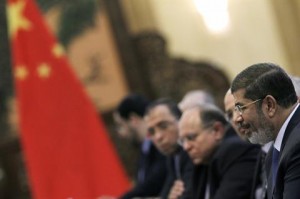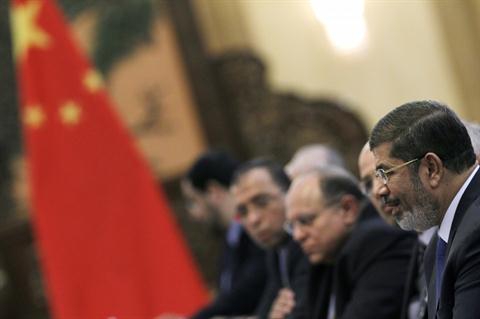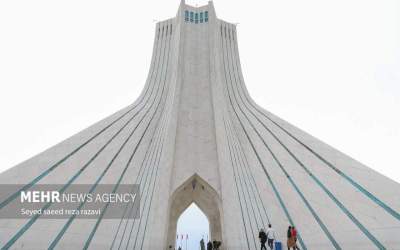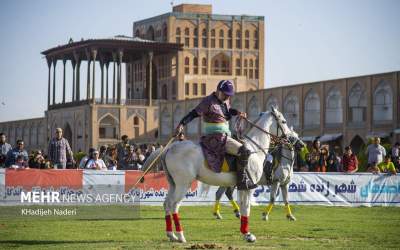CAIRO: Egypt's President Mohamed Morsi, by visiting Iran this week, aims to distance himself from three decades of chilly ties and cautiously pursue a more agile diplomacy than his predecessor Hosni Mubarak.

Egypt's first Islamist and freely elected president is headed for Tehran to hand over the rotating leadership of the Non-Aligned Movement at a summit on Thursday and Friday.
The visit will last a "few hours," his spokesman Yassir Ali said, and only summit-related issues will be raised.
"No other topic is expected," he said, ruling out discussions on a resumption of diplomatic relations with Iran, severed after the 1979 Islamic revolution which installed a theocracy opposed to Egypt's peace treaty with Israel.
Iranian Foreign Minister Ali Akbar Salehi said last week he hoped the two countries would resume diplomatic ties, currently at the level of low-key interest sections in each other's country.
"Morsi's visit will give a big push towards normalisation (of) Egyptian-Iranian relations", said Elsayed Amin Shalby, director of the Egyptian Council for Foreign Affairs think-tank.
But "a four-hour visit can't make a breakthrough," he stressed.
A distinct warming in ties with Tehran would anger the United States, which has been pushing to isolate and sanction the Islamic republic over its controversial nuclear programme.
It would also antagonise Sunni monarchies in the Gulf that accuse Iran of trying to destabilise their oil-rich region, and on which Egypt partially relies for aid to revive its battered economy after its 2011 uprising.
Morsi himself hails from the Muslim Brotherhood, a Sunni movement which has had an ambivalent stance towards Shiite Iran.
Mubarak, who ruled for three decades before his overthrow in February 2011, positioned himself alongside the United States and other countries hostile to Iran's influence, which extends to the Hamas rulers of Gaza in Egypt's back yard.
Before its downfall, Mubarak's government even accused Tehran of trying to destabilise his regime, which gave way after the uprising to military rule and then Morsi's election last June.
Morsi appears set on taking a different tack, while sending reassuring messages to the Gulf states. His first foreign visit after his election was to Saudi Arabia, Iran's main rival in the region.
Egypt's diplomatic line will be "more agile and active," leaving behind the "stagnation" under Mubarak's rule, Morsi's spokesman Ali said before the president left for China en route to Iran.
"We are not in competition with any country," he said.
The conflict in Syria, where US- and Gulf-backed rebels are trying to unseat President Bashar al-Assad, Iran's closest regional ally, has given Morsi an opportunity to reach out to Tehran.
Tehran has welcomed his proposal of a regional committee to find a solution to the Syrian crisis including Egypt, Iran, Saudi Arabia and Turkey, although Morsi himself has called for Assad to step down.
"If this group succeeds, Iran would be part of the solution and not the problem," Ali said.
The Iran Project is not responsible for the content of quoted articles.











